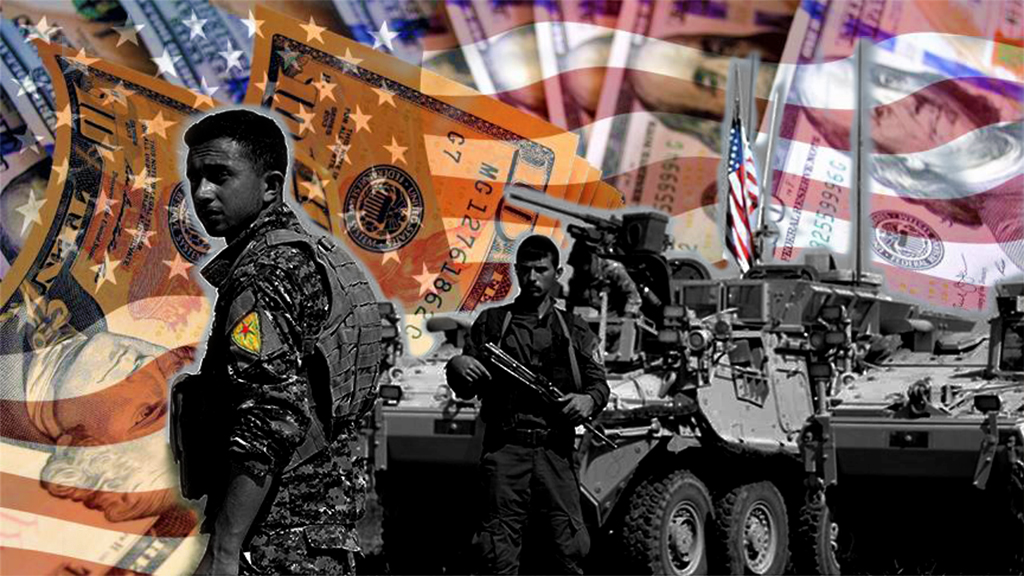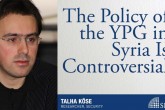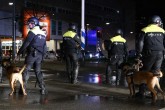n one of the most debated books in the U.S., “Political Tribes: Group Instinct and the Fate of the Nations,” Amy Chua, a Yale University professor, wrote about how identity politics abroad is often missed by the U.S. and how this negligence has generated major failures in U.S. foreign policy. In one of her cases, Chua mentions how the U.S. failed to understand the internal dynamics of Iraq before and during the invasion and how the attempts to understand this process during the surge was a little late. According to her, “the on-the-ground American ignorance of local groups’ conditions is hard to overstate.” She quotes, H.R. McMaster, the current U.S. national security adviser and then colonel in Tal Afar, as saying: “We made a lot mistakes. We were like a blind man, trying to do the right thing but breaking a lot of things.” The examples that Chua presents also include the Vietnam War and the war in Afghanistan. But what about the U.S.’s intervention in Syria?
Every article on the recent crisis between Turkey and the U.S. mentions the role of U.S. support for the People’s Protection Units (YPG). This U.S. foreign policy has become the biggest spoiler in relations and after the winding down of the fight against Daesh, this issue has become more critical for the future of relations between Turkey and the U.S. Some observers and analysts consider the current state of affairs as a significant dilemma for the U.S. Some have even started to compare U.S. relations with Turkey to U.S. ties with the YPG. In reality, the issue is not that complicated. If there is to be a comparison, on one side there is a Marxist-Leninist terrorist organization that did not get any significant success in the fight against Daesh until coalition airstrikes provided them support and coverage. On the other side there is a NATO ally that has been a U.S. partner since the global fight against terrorism in the aftermath of 9/11. So it is a difficult choice. The real difficult question for the U.S. is who is responsible for this mess, who caused this dilemma.
From the very beginning, it was clear that the U.S. never had a real counter-Daesh policy – then President Barack Obama called it a JV team. Only after Daesh overran Mosul did the U.S. start to think about it. The $500 million to train and equip the opposition was presented as one of these steps. Looking back, it is now clear that it was not a serious commitment. Immediately after Daesh’s execution of two Americans, the administration rushed to do something. At this point, the U.S. administration was trying to design a Daesh policy sticking to the no-boots-on-the-ground talking point. Supporting the YPG against Daesh in Kobani was considered as a solution and it was supporting only the YPG, a terrorist organization and a national security threat to Turkey.
Following Kobani, those who came up with this idea gained a little more support. At the end of the day, there was no policy, and operational success has become the biggest determinant and driver of the policy for the administration. There was a critical mistake that the U.S. was committing that brings up the focus of Chua’s book. First of all, the YPG does not represent all Kurds and through its policies it was trying to eliminate all the Kurdish groups against it. Secondly, the region is predominantly composed of Sunni Arabs and Turkmens in some of towns. Under these circumstances, supporting a Marxist-Leninist group whose archaic ideology does not represent any population and the crude and vulgar implementation of its ideology in the region ruled by this group generated a tragicomic situation. It was very clear that support to such a group meant a lack of respect for any ethnic, political or religious sensitivities in the region.
Instead of winning the hearts and minds of the people in the region and taking a lesson from the surge it adopted during the Iraq War, the U.S. administration decided to move forward with supporting the YPG. While the U.S. administration largely turning blind eye to the group’s demographic engineering and its attacks on other ethnic and religious groups, it generated increasing ethnic tension in the region. Cities like Manbij, which has been predominantly Sunni, are under the control of the YPG, despite opposition from Ankara. It was increasingly perceived in Turkey that in addition to the operations on the ground, the Kurdish nationalist ambitions of the YPG also started to shape U.S. policy.
In the meantime, as a general said, in order not to irritate Ankara – another name, the Syrian Democratic Forces (SDF) – was invented and Sunni Arab groups started to be added to this group. However, all of the analysis of the SDF shows that the YPG basically controls everything within the group. The municipal councils that were established following the defeat of Daesh are controlled by the YPG. In the meantime, both the number of U.S. soldiers and the amount of U.S. military assistance to the YPG grew.
Meanwhile the PKK launched major attacks in cities and city centers in Turkey. The U.S. support for the YPG was a major boost for the morale of the PKK. It was gaining legitimacy since it was only the U.S. that was able to distinguish the YPG from PKK. Its members were being recognized and glorified by U.S. officials. U.S. officials considered endangering Turkey’s security a temporary disturbance. It was not clear why U.S. officials have trusted their tactical partner so much. Maybe it was thought that this partnership could de-radicalize the YPG, making them leave their radical Marxist-Leninist ideology. Of course, during this period in YPG-held territories, the ideological YPG indoctrination at schools has been taking place full speed. Maybe it was thought that the YPG would leave its decades-long animosity for Turkey and its relations with the PKK. If so, it was a major lack of understanding the dynamics in the region.
The U.S. chose to work with the YPG even in predominantly Sunni Arab cities such as Raqqa and Deir ez-Zor instead of the Free Syrian Army (FSA) or any other Sunni group. There was an inconsideration of the potential of Sunni Arab groups in the fight against Daesh. Following the Raqqa operation, YPG members organized rallies under a huge poster of Abdullah Öcalan, the imprisoned leader of the PKK, which the U.S considers to be a terrorist organization. There was no consideration of ethnic issues in northern Syria, no consideration for the ideological radicalness of the group and no consideration for the ideological enmity of the group for Turkey.
Following the beginning of Turkey’s Afrin operation and the winding down of the fight against Daesh, now there is a question about the future of U.S.-YPG relations. It is not clear how the ethnic, ideological and territorial ambitions of the YPG, which has been fed for the past several years, will be controlled. Increasing the number of Arab groups in the SDF without empowering them will mean nothing. YPG occupation of oil-rich regions by its U.S.-trained and equipped members will add an economic dimension to it, as well. Furthermore, the reports that say the U.S. is looking for Kurdish groups that Turkey can work with shows the tragedy on the ground, considering most of these groups were already eliminated by the YPG. Some reports even suggest that the U.S. may try to mobilize the YPG against the PKK, which does not mean anything considering the relation between the YPG and PKK. Following such a major inconsideration of the ethnic fault lines, demographic realities and ideological idiosyncrasies of the YPG, it will be challenging for the U.S. to come up with policies that bring long-term stability and security to the region.
Chua says in her book: “If we want to get our foreign policy right – if we don’t want to be perpetually caught off guard, fighting unwinnable wars, and stuck having to choose between third- and fourth best options – the United States has to come to grips with political tribalism abroad.” At this point, better understanding the identity of the YPG may belatedly provide some options for the U.S.
[Daily Sabah, 28 February 2018]
In this article
- Opinion
- 2018
- Abdullah Öcalan
- Afghanistan
- DAESH
- Daily Sabah
- Fight against DAESH
- Fight Against Terror
- Free Syrian Army
- Free Syrian Army (FSA)
- Identity Politics
- Intervention in Syria
- Iraq
- Kobane
- Kurdish Nationalism
- Kurdistan Workers' Party Terrorist Organization (PKK)
- Middle East
- NATO
- NATO Ally
- Opposition
- People's Protection Units (YPG)
- PKK - YPG - SDF - PYD - YPJ - SDG - HBDH - HPG - KCK - PJAK - TAK - YBŞ
- September 11 2001 Attacks | 9/11
- Sunni
- Syria
- Syrian Civil War
- Syrian Conflict
- Syrian Crisis
- Syrian Democratic Forces (SDF)
- Terror
- Terrorism
- Turkish Foreign Policy
- Turkish-American Relations
- Türkiye-US Relations
- Türkiye's Foreign Policy
- United States (US)
- US Federal Reserve System (FED)
- US Foreign Policy
- US Military
- US-PKK/PYD/YPG/SDF Relations
- US-Terror Relations
- Vietnam



